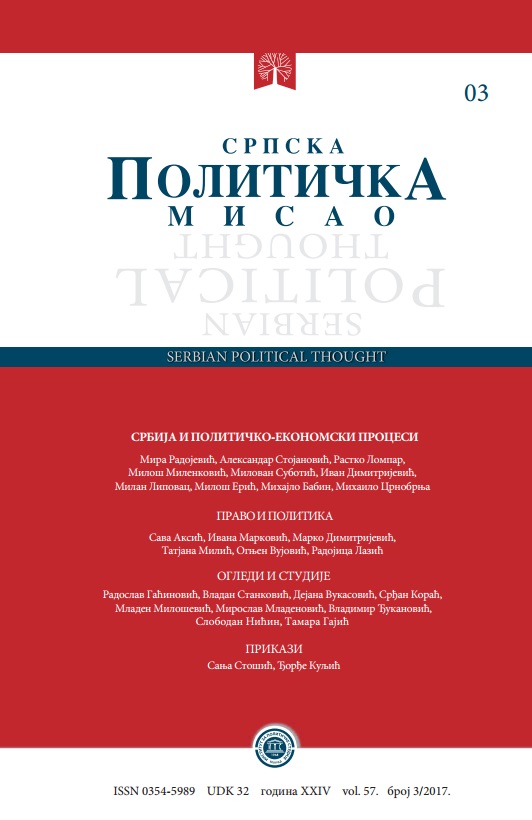О потреби формирања фискалне уније у европском монетарном праву
About the Need of Constitution the Fiscal Union in European Monetary Law
Author(s): Marko DimitrijevićSubject(s): Constitutional Law, Economic policy, Law on Economics, EU-Approach / EU-Accession / EU-Development, EU-Legislation
Published by: Институт за политичке студије
Keywords: fiscal union; monetary law; European Union; fiscal sovereignty; financial sovereignty; fiscal rules
Summary/Abstract: The subject of analysis in this paper is to review the need for formation the fiscal union for the purpose of completing the concept of European economic and monetary union. In this context, a notion of fiscal union is comprehensively perceived, potential institutional structure and legal basis are determined by the provisions of primary and secondary monetary legislation by indicating the costs and benefits of creating such a concept of coordination of national fiscal policies. By reviewing the experiences of countries that successfully implement the concepts of fiscal union in practice, it want to identified optimally constituent elements for the creation of a European fiscal union, with the respect on the sensitivity of the countries in limiting components of fiscal and financial sovereignty. Applying dogmatic, axiological and comparative legal method, the paper attempts to point out the biggest dilemmas that the European legislator will face in this area and identify certain guidelines de lege ferenda. We can notice that economic policy coordination in the fiscal union is not the complete delegation of fiscal and financial sovereignty to the Community level. The financial sovereignty as a subjective budgetary right of every state should remain within the competence of the national government level, as well as the dimensions of the fiscal sovereignty of the law on the part of imposing the new taxes. The concept of fiscal union at the same time does not mean unconditional replacement of the concept of national fiscal policy by the concept of supranational, but it is evident that certain modifications (a certain degree of centralisation of fiscal policy) are necessary. Coordination of economic policies in the fiscal union can find an effective mechanism against the mortgage, banking and related disorders in the legal and economic spheres of society. The fiscal union, according to the author’s opinion, is conditio sine qua non harmonisation of economic and monetary systems of the Member States which in condition of global financial crisis represents an important model of a credible macroeconomic management that may restrict legal and economic consequences in a way that is socially acceptable.
Journal: Српска политичка мисао
- Issue Year: 2017
- Issue No: 3
- Page Range: 149-163
- Page Count: 15
- Language: Serbian

